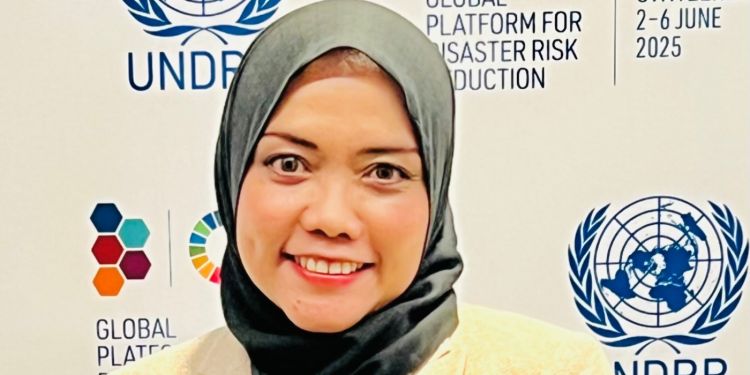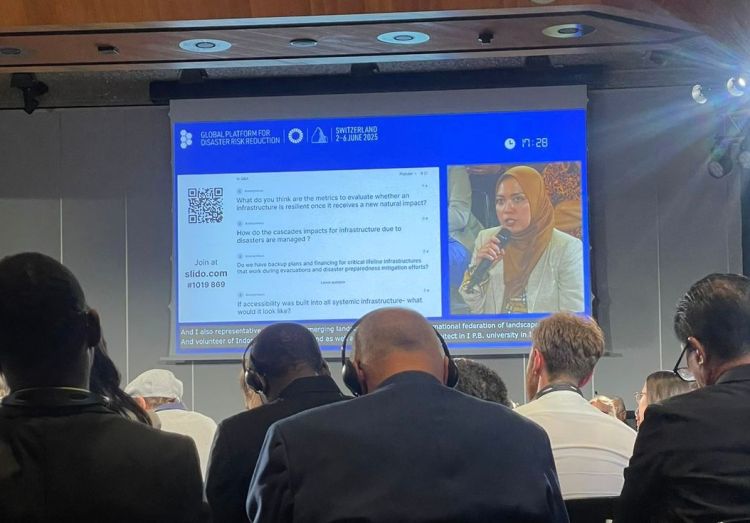Researcher represents Leeds at UN Global Platform for Disaster Risk Reduction in Geneva

A doctoral researcher from the University of Leeds’ Architecture and Urbanism Research Group has represented the university at a prestigious United Nations event.
Dewi Rezalini Anwar (Reza) was selected as an academic delegate for the prestigious United Nations Global Platform for Disaster Risk Reduction (GP2025) in Geneva, Switzerland. The event, held from 2 to 6 June, gathered over 3,400 participants from 166 countries, including heads of state, ministers, NGOs, academics, and representatives from the private sector.
The Global Platform for Disaster Risk Reduction (GPDRR) is the world’s foremost forum on disaster risk reduction, organised every three years by the UN. Delegates are selected through a competitive process that involves reviewing proposals and CVs. Reza participated by providing her perspective based on her background in various presentations, discussions, and stakeholder forums focusing on disaster risk reduction issues.
At the forum, Reza brought forward insights from her research on child-friendly green spaces (CFGS) for post-disaster recovery, viewed through the lens of landscape architecture. Her work examines how outdoor space design can facilitate the psychological, physical, and social recovery of children following disasters.

Her participation highlights the vital role of academic research and innovation in shaping global disaster recovery policies that are inclusive and child-centered.
She said: “During my participation at GPDRR2025, the response to my research on child-friendly green spaces for post-disaster recovery was very positive, especially from delegates representing countries with frequent disaster experiences such as Japan, the Philippines, Nepal, and India.”
Reza noted that one NGO delegate, who is active in post-disaster areas, expressed strong interest in exploring future collaboration and adapting her approach to their projects. She emphasised that the spatial and landscape-based approach to supporting children’s psychosocial recovery is often overlooked, with minimal involvement from landscape architecture or urban design experts, especially those in academia. “So far, post-disaster planning has mainly focused on short-term recovery and physical infrastructure,” she explained.
Discussions at the forum highlighted the importance of inclusivity, particularly involving children in the design of public spaces. Reza, who also serves as a delegate for the International Federation of Landscape Architects (IFLA) and volunteers with Salam Aid, emphasised the need for clearer guidelines and policies to integrate specialised aspects, such as healing environments, mitigation spaces, or multifunctional areas, into disaster recovery strategies.
She believes the enthusiastic response to her work signals a significant gap in current Disaster Risk Reduction (DRR) policy, especially regarding the emotional well-being of children through landscape design interventions.
Reza concluded: “I am grateful for the opportunity to represent academia at this UN forum. This experience has been invaluable for learning, sharing, and building networks with others committed to creating more resilient, inclusive environments that prioritize vulnerable groups like children.”
Further information




